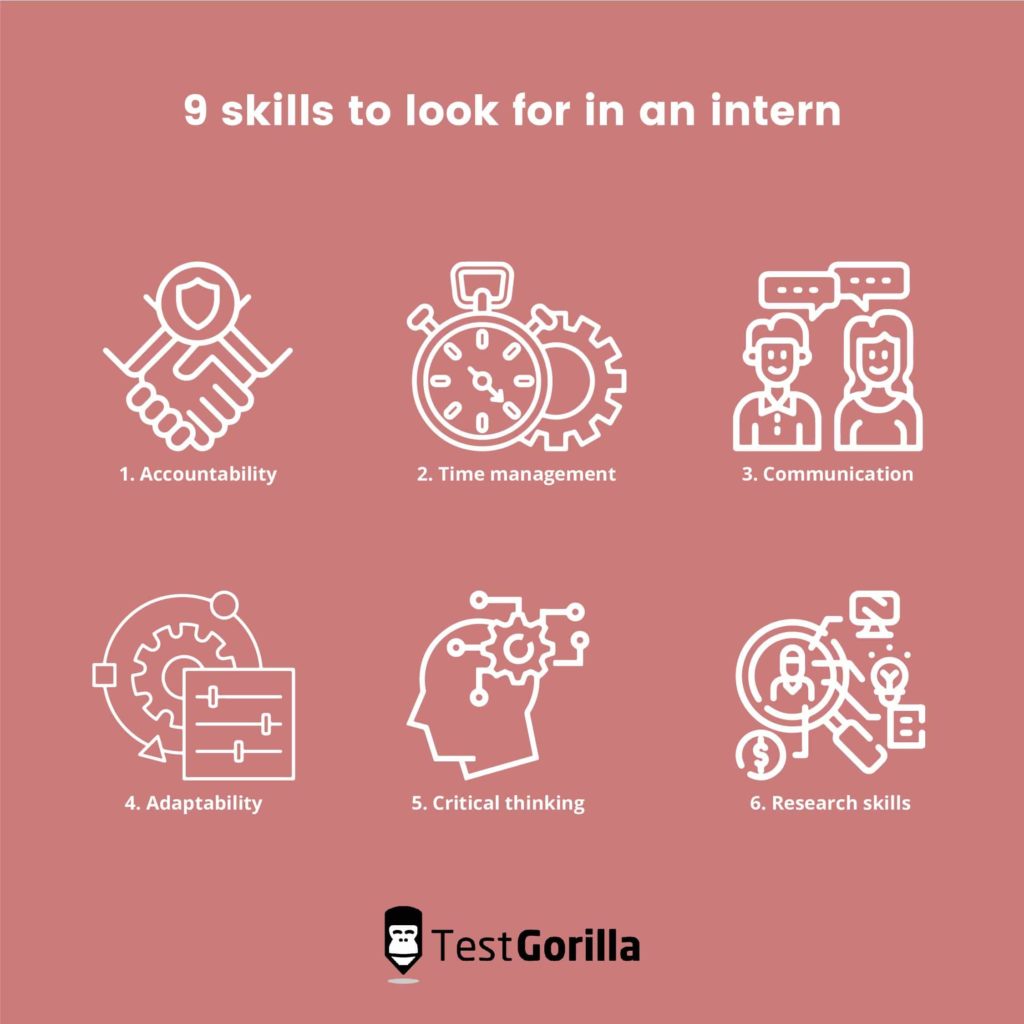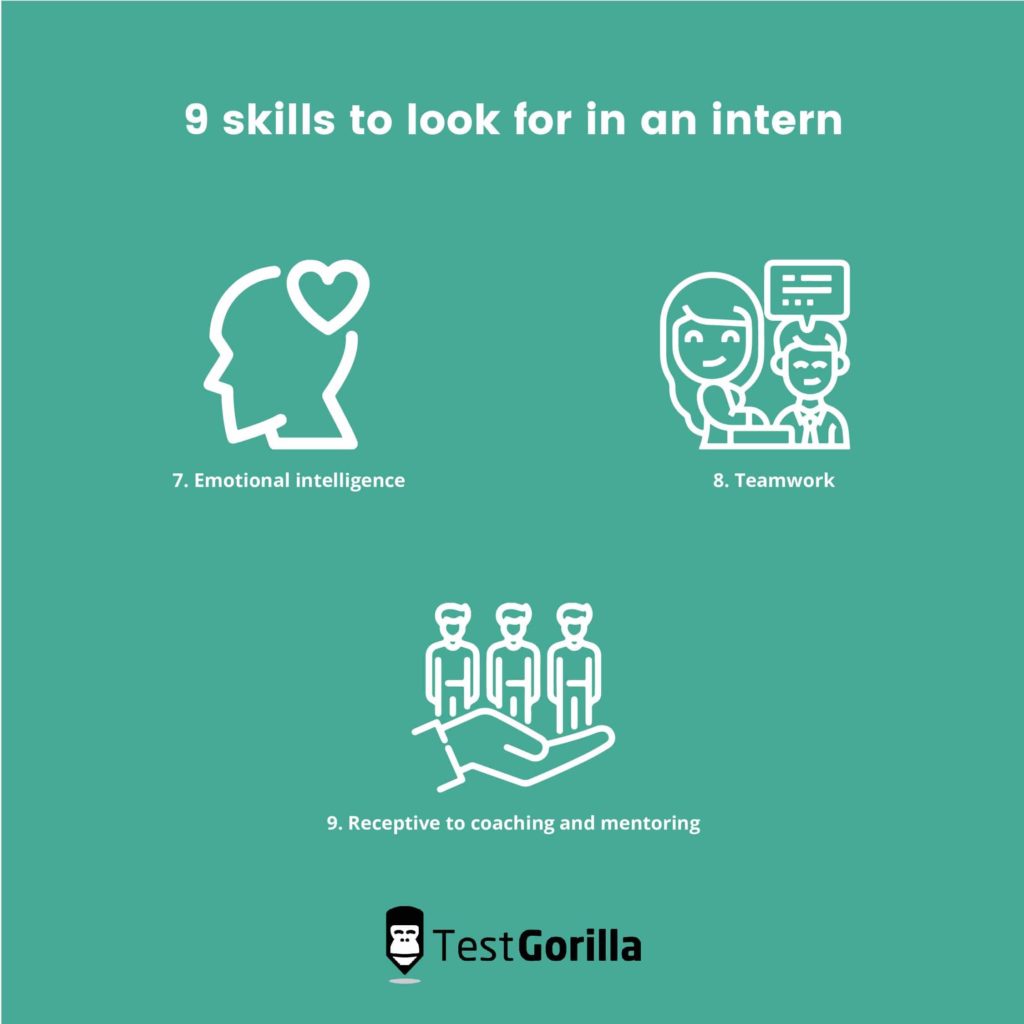Today, a large number of companies offer some kind of internship program.
A majority of candidates for internships are fresh graduates. Some of them might even become future employees of the company after establishing their value, commitment, and the capacity to learn and adapt during the internship.
Not all interns will prove to be excellent prospects, and others won’t fit in well and slow down your operations. So in this article, we will explore the pros and cons of having interns, how to hire them, where to find them, and how to screen them, so you get the best possible interns for your company.
The pros and cons of interns
Internships are short-term agreements of work between college graduates (or students) and a company. An internship is defined by a win-win situation for both parties— the graduate generally receives mentoring and experience, and occasionally even a paid internship. In contrast, the employer gets a hard-working individual who usually goes the extra mile to prove themselves.
The pros
There are quite a lot of pros when it comes to having an intern at your company:
1. Bring in a fresh perspective.
Fresh graduates or students frequently bring in new, fresh insight to their work. Any company can benefit from new ideas that ensure that the company’s relevance in the marketplace.
2. Improve employer brand.
In today’s market, having a good employer brand is essential. It’s no longer enough just to put an ad up and hope the talent will show up— the company needs to establish itself as a reputable employer that offers its employees benefits and opportunities. One of the ways to do that is by providing internship opportunities. The interns who will have a positive experience at the company will either start working there or share their positive experiences with their peers and colleagues.
3. Increases productivity.
Interns always give their all because they want to make a good impression. So having an intern on board during a challenging project is an excellent method to boost the team’s overall productivity.
4. Cut down hiring costs.
Internships are excellent lead-generating tools since they allow you to “test” if people would fit in well with your company. This reduces the company’s hiring costs and results in a win-win solution.
The cons
However, there are also some disadvantages when it comes to having interns at your company:
1. Meaningful work.
Meaningful work is one of the most important factors influencing a positive intern experience. For example, if you know that your company is about to enter a sluggish phase, don’t get an intern for that time. This would result in a lot of downtime for the intern and render their internship meaningless (and also affect your employer brand).
2. Directionless.
There’s the opposite side of the coin when it comes to slow time at work— you being so preoccupied with an ongoing project that you don’t have time to offer or provide any instruction or direction to the intern. During their internship with your company, interns will require guidance so that they understand what has to be done and can develop the necessary skills.
3. Maturity levels.
Not all interns are the same, and because interns are young, like fresh college graduates or students, you will encounter people with varying levels of maturity. Some of the interns are ready to be coached and mentored and will be outstanding employees, while others will need a couple of more years to grow and mature before they’re prepared to enter the corporate world.
Why do you need to hire an intern?
Even with these cons of interns listed above, it would still be a good idea to recruit interns for your company, and here are four reasons why you should do it:
1. Open project
When you’re working on a project, you might want to bring in an intern to help out on the team. Interns aren’t only for paperwork— they can be hard-working individuals who can provide fantastic insight and fresh perspective to a project.
2. Open position
When you have an unfilled position at your company and filling it is not an immediate requirement, it is good to hire an intern and groom them to fill the position. This is a great approach to locate talent and mold it so they can fill in the vacancies at your company.
3. Mentorship opportunity
Mentorship goes two ways— The relationship is beneficial to more than just interns. Mentoring also develops the mentor’s skills which range from communication and leadership to coaching and feedback.
4. Flexible or full-time schedule
Finally, depending on your workload and the amount of time available, you can decide whether the internship will be full-time or flexible/ part-time basis. Examine your company requirements and calendar to evaluate if you need someone present every day for the full 8-hours or if it is sufficient for the intern to work only 20 hours a week.
The best insights on HR and recruitment, delivered to your inbox.
Biweekly updates. No spam. Unsubscribe any time.
Intern hiring strategies
Now that you have decided to hire interns, how exactly are you going to go about doing that?
When it comes to recruiting an intern, there are two options:
Local schools and universities
As a company, it’s always a good idea to have solid relationships with local schools and universities— this is where your talent will come from.
Professors at school can recommend good students for your company because they already know their students and how well they would fit into your company. Also, universities might even reach out to you requesting internships on behalf of their students by keeping the communications channel open.
If you are short on time and need to find an intern fast, you can always contact a university and ask to offer an internship opportunity to the students directly on your behalf. This can provide you with many applications for the internship opportunity.
Job boards
The second method of hiring an intern is to search job boards.
You can use job boards to search for candidates for your internship. However, while this technique will yield many more applications than going through colleges and universities, you will have more work sorting through applicants.
The quality of applications will vary greatly, but you will have a larger talent pool to choose from.
How to hire an intern
Hiring an intern shouldn’t be as time-consuming as hiring a full-time employee for your company, but it shouldn’t be a “first come, first serve” situation. To hire an outstanding intern, you can do two things:
Pre-employment tests
Pre-employment tests are the first thing you should provide to potential interns. It doesn’t matter if they got a reference from a university professor or discovered the ad on a job board; you still need to test their skills and personality to determine if it is a good fit for your company.
Interns are usually inexperienced, and most of the differences between them will be based on emotional intelligence, culture add, and personality traits.
Big 5 (OCEAN), Culture add, Understanding instructions, and Critical thinking tests are excellent places to start evaluating interns.
Interview
After you’ve narrowed down your talent pool, it’s now time to have an interview with your internship candidates.
You should evaluate the candidates’ experience (if any), their motivation for the internship, their goals and expectations, and if they would be a good fit for your company in the coming months.
Remember that this term can also serve as a trial period for an employee who can be hired full-time if deemed an excellent addition to the company. So treat your interns as though they might be colleagues soon enough.
Intern hiring challenge: 9 skills to look for in an intern
You should look for the following skills in your interns to guarantee that they’ll be a hiring success. Look at the following skills in them:
1. Accountability
If you expect your intern to do meaningful work, they must be accountable to you, the work they’re doing, the employees, and the internship itself. If you’re going to offer an intern an opportunity to be a part of the team, learn new things, and offer them experience in the corporate world, make sure you give it to someone who can appreciate and follow through on it— someone who is accountable. The business ethics & compliance test from our Test Library is a good way to assess this skill.
2. Time management
The intern will need to have good time management if they want to be a part of the team. They must manage their time well to complete all the duties assigned to them and deliver results promptly. The time management test from our Test Library is a good way to assess this particular skill.
3. Communication
The intern will need to have strong interpersonal communication skills if they want their internship to succeed. Knowing how to express your ideas to others, giving and receiving feedback, and understanding the communication flow at a company are all essential skills for an intern to incorporate into the workplace. The communication skills test from our Test Library is a helpful approach to measure this skill.
4. Adaptability
The intern needs to think fast and adapt to the feedback and work environment if they want their internship to be successful. Because the intern often lacks corporate experience, they are there to learn (and adapt) to the company’s current needs. A reliable method to assess this skill is the verbal reasoning test from our Test Library.
5. Critical thinking
An intern should be able to take a problem or a situation and use their cognitive skills to determine the best course of action. . Critical thinking is essential in tackling any problem that the intern might encounter at work. The critical thinking test from our Test Library is an excellent approach to measure this talent.
6. Research skills
If an intern can’t solve the problem with their critical thinking skills, they need to research to figure out what needs to be done. This is a valuable skill to have in an intern because, if they’re resourceful, they can be a great addition to your company. A good way to assess this skill is the problem-solving test from our Test Library.
7. Emotional intelligence
An intern must have the adequate emotional intelligence to “read the room” and navigate the workplace. It’s a sought-after skill in today’s business world, and an emotionally intelligent intern will do quite well at their internship. A good way to assess this skill is the culture add test from our Test Library.
8. Receptive to coaching and mentoring.
An intern accepts an internship at your company to learn. Thus they should be receptive to coaching and mentoring from supervisors or those in higher management. A good way to assess this skill is the Understanding Instructions test from our Test Library.
9. Teamwork
An intern should be a team player and provide support to other team members, their superiors, and contribute to the organization’s overall success. A good way to assess this skill is the 16 types test from our Test Library.
Hiring an intern can help your company
Serious interns can be a valuable asset to your company.
Good interns are hard-working, critical thinkers, and receptive to coaching and feedback. In addition, they bring in fresh, new ideas to the workplace and provide the necessary support to your team members.
If they prove themselves, they might become your best employees in the future. If you need more information on how to have a successful internship, we recommend reading our guide to hiring interns the right way.
With TestGorilla, you’ll find the intern hiring process to be simpler, faster, and much more effective. Get started for free today and start making better hiring decisions, faster and bias-free.
You've scrolled this far
Why not try TestGorilla for free, and see what happens when you put skills first.




















